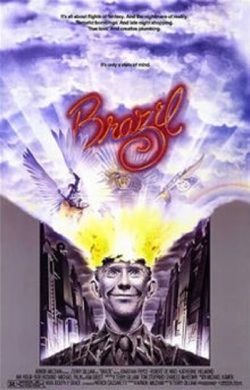Terry Gilliam’s Brazil imagines a world in which bureaucracy has won. It is a terrifying vision of the future. Brazil is a place where forms and procedures are more important than people, and where a paperwork error is the fault of the victim, not the bureaucrat who made it. Sentiments such as creativity, individuality, morality and the sanctity of life have no meaning in such a world that embraces its own stagnation and irrationality as points of pride and marks of its success.
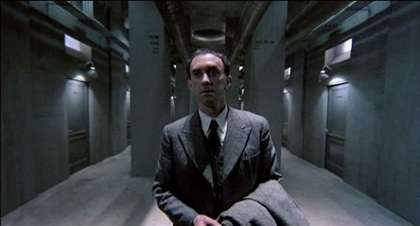
The film follows a young, low-level bureaucrat named Sam Lowry (played by the incomparable Jonathan Pryce) who is just trying to get by in life working a job that he finds sufficiently rewarding. All the while, society and his mother insist that he should try to advance higher in the system, because that is the proper measure of success (the fact that Lowry is perfectly happy where he is does not enter into consideration). Over the course of the film, Lowry dreams of a beautiful woman who he finally meets in life and who he struggles to help save from the bureaucratic system. While the story is well done and engaging, the most important part of Brazil is not the plot, but rather the horrific world that is occurs in.
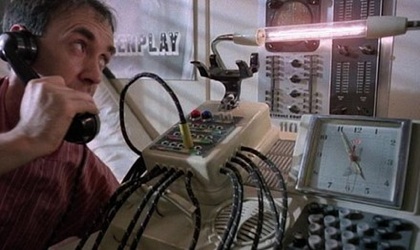
The unnamed society in Brazil (identified as being “Somewhere in the 20th Century”) shares many hallmarks with the confined, repressive world of Orwell’s Nineteen Eighty-Four. Both are run by monstrous, monolithic governments; both place little value on the life of the individual; and in both, a highly stratified social system exists that places the greatest luxury in the hands of the powerful. But whereas Orwell envisions a dystopian society built along the lines of mid-20th century totalitarianism, Brazil’s nightmare is one born from modern bureaucracy and consumerism. Pleasures are not denied outright, but rather they are restricted to those capable of affording them, which inevitably means people willing to undergo the process of rising high in the bureaucratic-corporate system. Indeed, one could argue that the world of Brazil is a horrific pairing of Nineteen Eighty-Four and Aldous Huxley’s Brave New World, mixing the former’s dehumanizing structure with the latter’s use of pleasure rewards to help maintain docility among the populace.
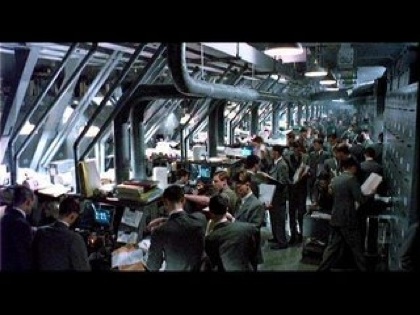
Brazil is like the theatre of the absurd. From an outside perspective none of it makes sense. An innocent man is arrested and presumably tortured and killed because a typographic error (the changing of a single letter on an arrest warrant) labeled him a dangerous terrorist. All attempts to appeal the mistake are shuffled around to other departments in a horrible bureaucratic shell game. Terrorists are dismissed as “bad sportsmen” and the bombings that wrack the city are covered up (physically with screens) as quickly as possible, not to deny their occurrence but to save the survivors from having to look at anything unpleasant. In order to save on the massive costs of running the monolithic Ministry of Information, criminals are billed for the process of arrest, imprisonment and torture that they undergo. But at the same time, society keeps running, and “good citizens” (i.e., people who have not run afoul of the fickleness of bureaucracy) have all the everyday home comforts they could want. So what if the government in Brazil will gladly kill an innocent man just because someone put his name on the wrong form? After all, we have television and fancy restaurants.
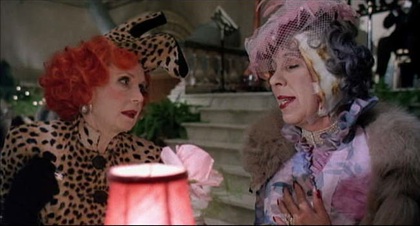
What makes Brazil so terrifying (arguably the most terrifying dystopian film ever made) is that it strikes so close to home. The world of Brazil is the logical progression of our own society’s worst and most absurd features. When we watch the film we can see facets of modern bureaucratic, consumerist life shining through, reminding us that as much as we cling to office life, paperwork, reasonable order and polite society to save us from chaos and discomfort, they become the same pit of irrationality that we desperately hope to escape.
G. D. Falksen is terrified of bureaucracy winning the war against creativity and he encourages all of you to go out and do your bit to fight the rising tide of paperwork that threatens to drown us all in absurdity.










